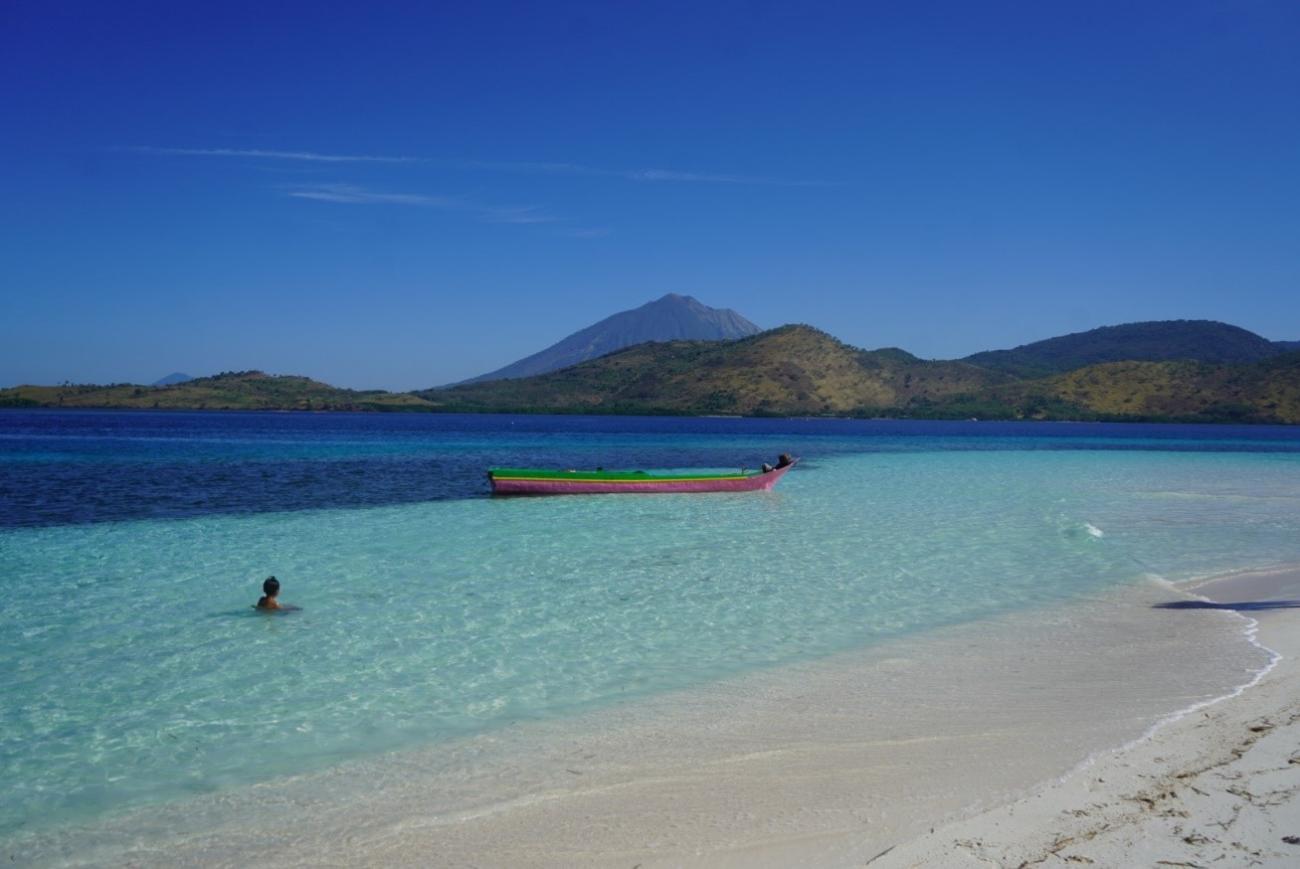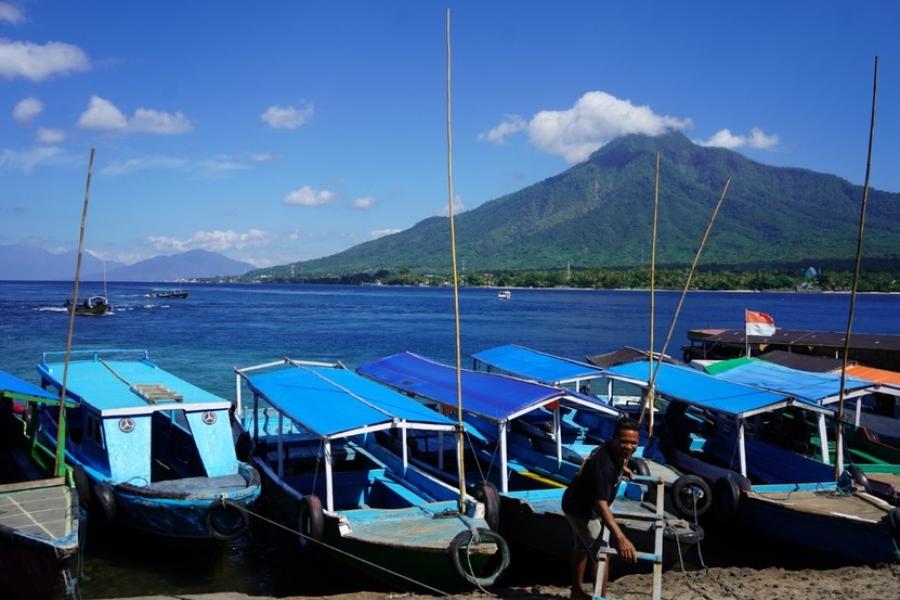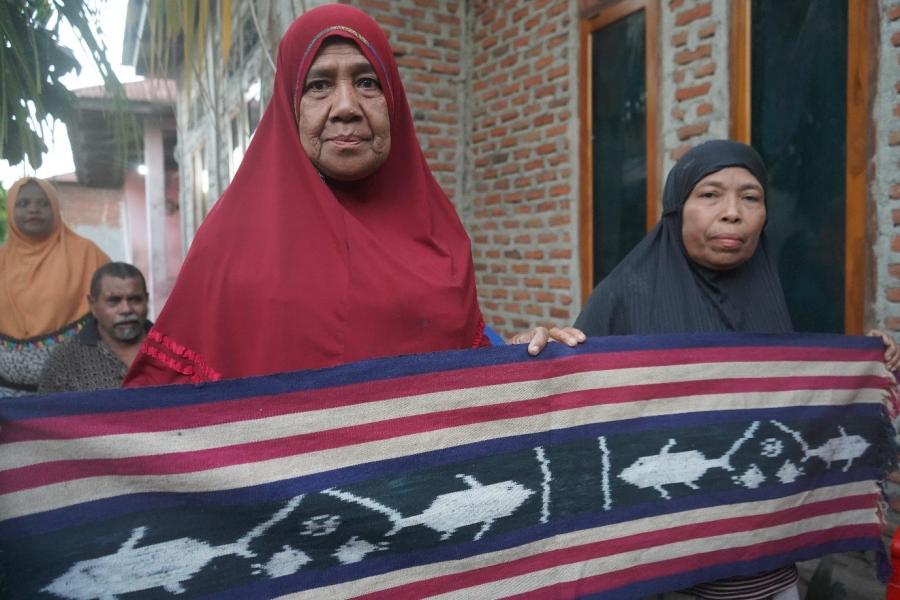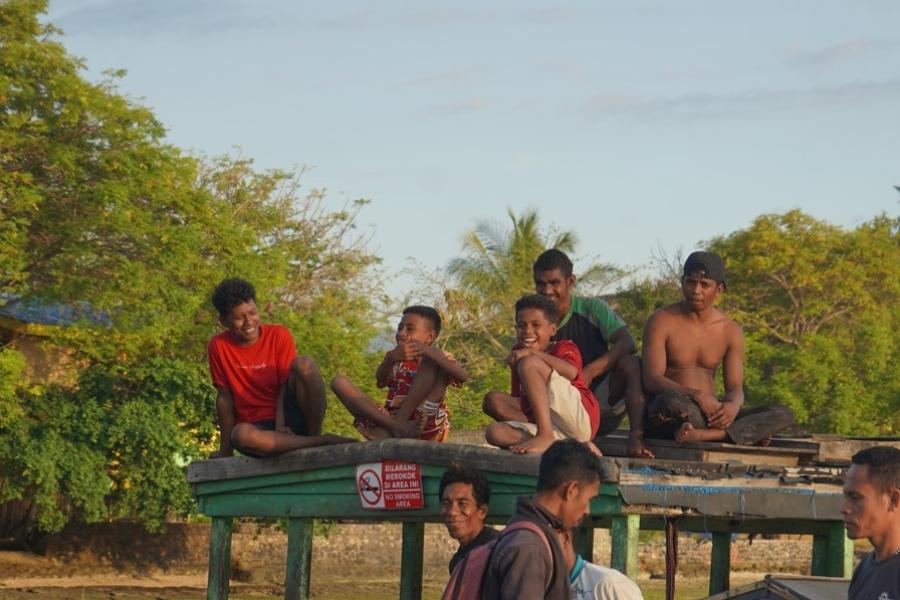Sustainable development of the ocean: UN supports inclusive development of Indonesia’s National Blue Economy Roadmap

What crosses your mind when you hear the word "SHARK"? Majestic? Scary? Scenes from the movie "Jaws"?
While it's true that thresher sharks are majestic, they are not dangerous. In fact, they are endangered.
Thresher sharks are widely hunted by the people of Alor Island, East Nusa Tenggara, mostly for their meat, fins, liver oil, bones, and skin, and considered as one of the highest priced catches after tuna and red snapper.
And there lies the problem: an 80% population decline over the past 10 years. As top predators, thresher sharks help manage healthy marine ecosystems by preventing the prey species from becoming overly abundant and disrupting the delicate ecology. The alarming decline in the thresher shark population not only raises concerns about the future of these magnificent creatures but also poses a threat to the overall health and stability of marine ecosystems.
This is what a team from the Ministry of National Development Planning (BAPPENAS) learned from a recent visit to East Nusa Tenggara, as part of a pioneering consultation process to develop the National Blue Economy Roadmap 2045, launched today, 3 July 2023. The Roadmap will play an important role in Indonesia's economic transformation under the government’s Vision 2045, setting a path towards a diversified and sustainable maritime economy.
“Achieving the Blue Economy is not just about accelerating economic growth,” said Amalia Adininggar Widyasanti, Deputy Minister for Economy Affairs at BAPPENAS. “It’s about creating a sustainable future, where the health of our oceans, the livelihoods of our coastal communities, and the prosperity of our nation are all intertwined.”
Indonesia is taking regional leadership on the Blue Economy, she added. “It is the first country to deliver a national roadmap, while promoting the ASEAN Blue Economy Framework under the leadership of Bappenas.”
The protection of endangered species while supporting livelihoods is an important part of the plan.
Journey towards a Thriving Blue Economy
At the request of the government, the United Nations in Indonesia has supported BAPPENAS in providing expertise and methodology for an inclusive process to develop the roadmap. The process involved consultations with 17 ministries, several development partners, community support organizations and the private sector as well as discussions with coastal communities in East Java and East Nusa Tenggara.
The support provided leverages the National Blue Agenda Actions Partnership (NBAAP), launched last year – a framework and cooperation mechanism in which 8 UN agencies, 8 government ministries and 12 development partners coordinate their projects to ensure complementarity and increased efficiency and effectiveness.
“Collaborating and working with many stakeholders is complex – but the time and effort invested will pay off for Indonesia,” said Valerie Julliand, the UN Resident Coordinator in Indonesia. “Taking into account the views of a diverse set of stakeholders and actors will lead to a stronger outcome reflecting joint experiences, and also a real buy-in from across the country.”
"We are pleased to collaborate with the government once again to achieve our shared vision for a thriving blue development and a healthier planet," Julliand added.

The recommendations received during the consultations have been included in the final version of the roadmap, launched at the ASEAN Blue Economy Forum, leveraging Indonesia's ASEAN chair ship this year.
Potential of the Blue Economy in East Nusa Tenggara
Today, East Nusa Tenggara is among the poorest provinces in Indonesia. The sustainable development of its blue economy could change that. With 596 islands and over 15 million hectares of water, the province offers opportunities for sustainable fishery infrastructure development, marine conservation, and the development of marine-based industries such tourism, craftmanship, and renewable energy development.
“Maintaining marine health does not mean shutting down the economy. Instead, it will unlock the potential of a blue economy that is more sustainable and inclusive,” said Leonardo Adypurnama Alias Teguh Sambodo, Senior Advisor for Leading Sector and Infrastructure Development at BAPPENAS.
Taking measures to conserve the ocean and its resources would be “the greatest” in combatting the climate crisis and achieving sustainable development, he added.
This is already visible on Alor Island, where – with the support of a youth-led NGO, Tresher Shark Indonesia (TSI) – fishermen have been provided with alternative livelihoods, including raising livestock and farming, said Yodhikson Bang, project officer.
With the help of TSI, the women of Alor have started their own businesses, including weaving textiles using traditional shark patterns.
“The development of side businesses and opening other business opportunities can provide an alternative for fishers and allow shark stocks to regenerate,” Bang said.






